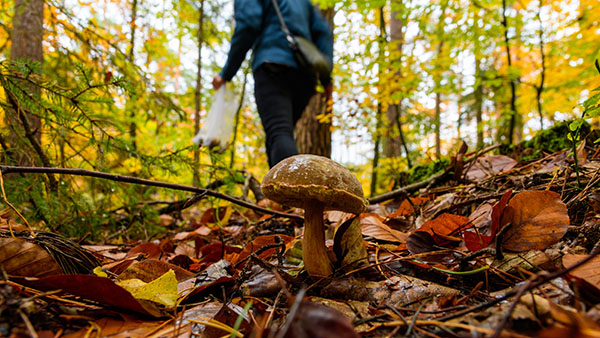
If you forget about rodent control, all your efforts will go to waste. A mouse can wreak havoc on your blankets, sleeping bags and food items by chewing holes and spreading disease-ridden mice droppings.
Mice can chew through cardboard and Mylar storage containers. These pesky rodents can even chew through plastic buckets.
Detailed below are eight natural ways to keep rats out of your survival stockpile.
Aluminum foil
Wrap cardboards, fabrics and other soft-sided preps in aluminum foil to keep mice and rats away. Rodents hate the taste of aluminum foil.
Chewing and ingesting aluminum foil also causes pain in rats. These pests hate the sound aluminum foil makes when they walk or crawl over it.
Diatomaceous earth
Diatomaceous earth (DE), when ingested, causes dehydration in flying insects, slugs, spiders and animals like mice, moles, rabbits, rats and voles.
Sprinkle DE around or near your stockpile or mix it into bait used in conventional traps. DE will eventually kill any pest that attempts to get into your stockpile.
Alternatively, you can mix DE with fragrant essential oils (e.g., balsam fir oil, clove oil, peppermint essential oil or tea tree oil) to get rid of pests more effectively.
Another option is to mix cayenne pepper with DE. Rodents hate the smell and taste of cayenne.
Leave your DE traps and bait close to where the rats live and eat. To get rid of rats in your yard, dump the DE mix down their holes. For rodents in your home, leave scented DE traps open on counters or on the floor.
Food-grade DE is safe for pets or livestock.
Cedar chips
Mice and rats hate the smell of cedar chips. Fill a couple of three- or five-gallon buckets with cedar chips, then store the buckets near your survival gear and stockpile.
Alcohol and peppermint spray
Rodents hate the smell of peppermint. You'll need two teaspoons of peppermint essential oil for every cup of vodka or rubbing alcohol that you use to make this rodent repellent spray.
Both vodka and rubbing alcohol have disinfectant properties and are safe to spray around or on your preps.
Cotton ball rat barriers
This method is effective, but you need to replace the cotton balls at least once a week when they lose their potency.
Soak the cotton balls in fragrant essential oils then place them near your survival gear, food storage areas, around entryways inside your house and under beds.
To get rid of flying insects, soak a cotton ball or cheesecloth in a fragrant essential oil then hang it above and near your stockpile.
DE mice repellent spray recipe
Use this repellent spray on containers for your preps and in your main storage area for supplies.
Ingredients:
- 1 cup of diatomaceous earth
- 1/8 cup of water
- 4 drops each of peppermint and lemon essential oil
Steps:
- Pour the water and essential oils into a squirt bottle or an upright container that you can place in your storage area.
- Stir the container to mix the ingredients.
- Add the diatomaceous earth. Stir until the DE becomes moist.
Once the mixture is thin enough, pour it inside rat nests. (Related: Food storage tips and tricks for preppers.)
When the DE mixture loses its potency, pour in a bit of water to moisten it again then add more essential oils.
DIY rodent repellent sachets
To make rodent repellent sachets, mix equal amounts of catnip, cayenne pepper, mint and whole cloves. Place the mixture in little sachets or cheesecloth tied in a bunch at the top.
Add at least five drops of peppermint oil to the mixture, then shake the bag or use a spoon to work the oil around the dry ingredients.
Leave the sachets where rodents have been spotted or inside non-food storage containers.
Kitty rodent stopper
Cat urine has a lingering, ammonia-like smell that can repel rats.
Put full litter boxes near your survival stockpiles, then pour in two cups of ammonia. This will mimic the smell of cat urine.
After the smell dissipates within a week, pour in another two cups of ammonia. Replace the cat litter at least once a month, then repeat the steps above.
Rats will seek refuge inside your home as the weather becomes colder. Keep them out before they have a chance to hide in your preps and ruin your supplies.
Seal off cracks or small holes with caulk or steel wool. A draft stopper under doors will help keep out the cold air and pests that try to enter your home.
Use DE and pungent essential oils to keep rats out of your home and food storage areas.
Sources include:
Please contact us for more information.























